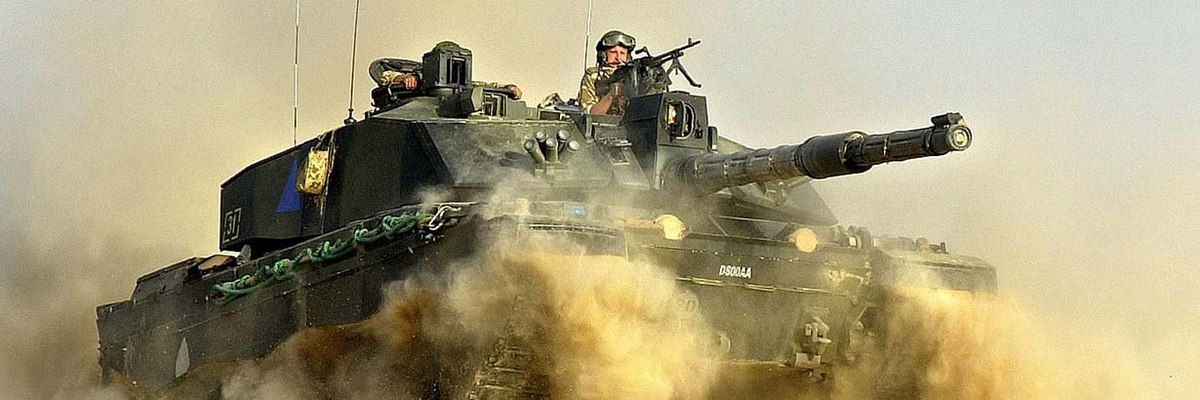YouGov’s latest Big Survey dives into the views, attitudes and opinions of the British public on the role and impact of NATO in the world, its Eastern European expansion’s impact on Russia relations and potential new members. The study also looks at the role of military alliances and the UN, the likelihood of Britain’s war involvement, the national defence capabilities, and perspectives on nuclear weapons and global peace prospects
The North Atlantic Treaty Organisation (NATO) recently marked 75 years since its founding. The anniversary came at a time of political, economic and military instability across the world. The ongoing war in Ukraine, the war between Israel and Hamas in Gaza, as well as the rise in geopolitical tensions in other parts of the world in recent years, has prompted countries to increase military spending and engage in new military and defence alliances.
YouGov’s latest Big Survey has asked Britons how they feel about NATO, which countries they would support joining the alliance and how the organisation’s expansion in Eastern Europe has impacted relations with Russia. The study also looks at the role of military alliances and the United Nations. The public was asked about the chances of Britain being involved in a war and whether the armed forces would be able to defend the country. The survey also covered questions about the existence and use of nuclear weapons and the prospects of peace on Earth.
It should be noted that, except for the part about NATO, the study is largely based on the YouGov Study of War, which we ran and published in 2022. The comparisons between the results are given where relevant.
The study was conducted from 18-22 March 2024 on a sample of 1,830 UK adults aged 16 and older. It should be noted that the same study was conducted in the US and the results of that study will be published on our US website here.
The survey is divided into the following sections:
Part One: Britons on NATO and other military alliances
Part Two: The expansion of NATO and its impact on peace in Europe
Part Three: The role of the United Nations in preventing war
Part Four: The UK and the prospect of war
Part Five: The nuclear dilemma - Britons on weapons of mass destruction
Part Six: Britons on the future of global peace
Here are the top 15 things we found in the Big Survey on NATO and War:
Overwhelming support for NATO - 83% of Britons support the existence of NATO, and 5% oppose it. Support is lower in the younger generations: 72-75% among those under 40, compared to 85-93% among the older age groups.
NATO to be used for defence - six in ten Britons (61%) think that NATO should be used only for defensive purposes, but 23% think the organisation should also be prepared to attack countries that are considered a threat. Also, two-thirds of Britons (65%) think NATO should be involved in humanitarian military interventions.
Support for NATO enlargement in Europe - three-quarters (76%) of Britons support more European countries joining NATO, while 6% oppose the idea.
Ukraine and Russia in NATO - eight in ten Britons (80%) would be in favour of Ukraine’s accession to NATO, while 6% would oppose it. YouGov also asked the public whether they would support Russia joining NATO: 14% responded positively, while 71% were against.
NATO expansion worsened relations with Russia but did not increase the likelihood of war - half of Britons (52%) think that Eastern European countries joining NATO generally worsened relations between the West and Russia. However, only 15% of Britons say the NATO inclusion of Eastern European countries has increased the likelihood of war taking place in Europe. Four in ten (39%) think the opposite.
The role of the UN - Britons are split on how successful the UN is in implementing its mission. While 38% think it is successful in averting global conflicts, 43% think it is not. A third of Britons (33%) support the idea of the UN having more influence than now. One in eight Britons (11%) oppose it.
UN army - public opinion in Britain is divided on whether the UN should have its own army, with 31% in favour, 30% opposed, and 39% undecided.
UK’s involvement in previous wars - only in the case of the Second World War do the majority of Britons (82%) think the country was right to get involved. Around half (51%) think the UK was right to fight in the Falklands war in 1982. When it comes to the invasion of Iraq in 2003, just 16% think it was the right decision, while 54% think it was wrong.
War likely - over half of Britons (55%) think it is likely that the UK will be involved in a war in the next five years, with 12% saying that war is “very likely”. Half of Britons (52%) would support going to war if a UK ally was attacked, with those who voted Conservative in 2019 being more supportive of the idea than the 2019 Labour voters (61% vs 49%).
Low confidence in the British army - just one in eight Britons (12%) feel “very confident” that the UK can defend itself from an attack, while 39% are somewhat confident. Four in ten (39%) are not confident in the ability of the British army to defend the country in case of an attack by another power, including 10% who say they are “not at all confident”.
Increase the defence budget - six in ten Britons (62%) support increasing the defence budget, with 30% saying it should “increase significantly”.
No to nukes - two-thirds of Britons (66%) believe that no nation should possess nuclear weapons. Around a quarter (23%) think that nuclear weapons should be limited only to countries that possess them now. Just 4% think that other countries should be free to pursue the development of nuclear arms.
Nuclear danger - two-thirds of Britons (67%) think that nuclear weapons are making the world a more dangerous place, while just one in nine (11%) say the opposite. A third (36%) report that they have considered what to do in case of a nuclear attack, while 58% say they have not.
UK possessing/using nuclear weapons - three in ten Britons (29%) say it makes them feel safer that the UK has nuclear weapons, but a quarter of the population (24%) report feeling less safe. Four in ten (39%) say they feel neither safe nor unsafe. Just 6% of Britons think that it would be acceptable for the UK to use nuclear weapons first. However, in the case of the UK being attacked with nuclear weapons, 55% would support Britain launching a nuclear counterattack.
Peace on earth unlikely - one in ten Britons (10%) think the world will be more peaceful 50 years from now, with 42% anticipating a decline in world peace. When it comes to those who believe that there will be a time when there will be no wars, around half (55%) think that will happen within the next 100 years, while around a quarter (26%) think it will take longer than that.








